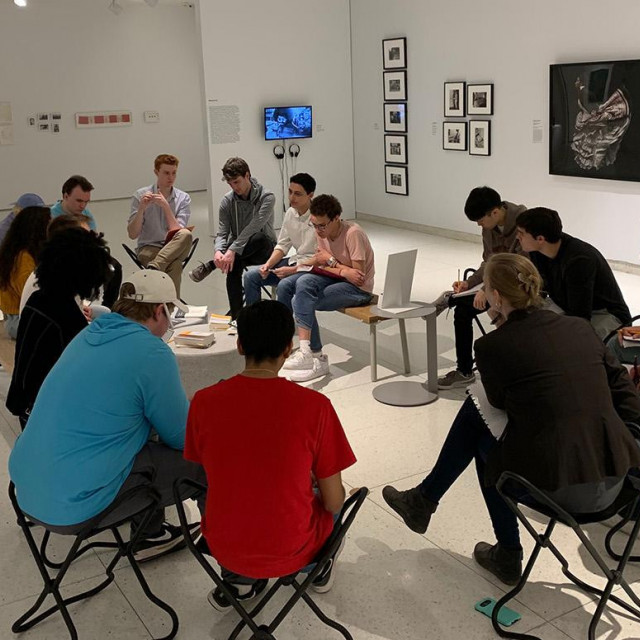
The Core
Social Sciences Core
Aristotle remarked that man is a Zoon Politikon, a political animal, who doesn’t simply live in nature like other animals but in communities of his own making. The Social Science core sequences introduce students to the central concepts and categories that shape the social-scientific investigation of these self-created and dynamic societies. While these sequences do not provide a disciplinary training per se, these courses teach students a critical vocabulary to ask foundational questions, such as, What is society? What is the role of the individual in its constitution? The SOSC core offers a broad array of courses and what unites them all is the commitment to approaching critically matters of social formation and change.
Quick Links
Social Sciences Sequences
- View Social Science Inquiry Autumn Syllabus
- View Social Science Inquiry Winter Syllabus
- View Social Science Inquiry Spring Syllabus
- View Social Science Formal Theory Autumn Syllabus
- View Social Science Formal Theory Winter Syllabus
- View Social Science Formal Theory Spring Syllabus
- View Social Science Inquiry Info Sheet
- View Democracy: Equality, Liberty, and the Dilemmas of Self-Government Autumn Syllabus
- View Democracy: Equality, Liberty, and the Dilemmas of Self-Government Winter Syllabus
- View Democracy: Equality, Liberty, and the Dilemmas of Self-Government Spring Syllabus
- View Democracy: Equality, Liberty, and the Dilemmas of Self-Government Info Sheet
Power, Identity, and Resistance (SOSC 114-115-116) examines the conception of liberalism by focusing on the structures of political economy, and issues of class and gender inequalities.
Self, Culture, and Society (SOSC 124-125-126) focuses on the historical specificity of modern society and the contested nature of freedom in history, as it examines the dynamics of capitalism and the constitution of the modern conception of self by exploring the issues of race, gender, and sexuality.
Social Science Inquiry (SOSC 13100-13200, 13300/13110-13210-13310/13120-13220-13320), as the name suggests, introduces students to the theory and methodology of social science research, and how policy implications can be understood by empirical evidence. There are also two more specialized and separate sequences — Formal Theory and Spatial Analysis. While the former offers a schematic analysis of social behavior and choices, the latter analyzes the role of space/location to explore the notion of quantitative geography.
Mind (SOSC 14100-14200-14300) investigates human behavior through the lens of mental and biological mechanisms informed by social context.
Classics of Social and Political Thought (SOSC 15100-15200-15300) keys into understanding the formation of political and socio-economic institutions, and analyzes tensions that exist, for instance, between religion and politics, liberty and equality.
Global Society (SOSC 16100-16200-16300) analyzes notions of social thought and change beyond the framework of western civilization by considering the global canon within the social sciences.
Religion: Cosmos, Conscience, and Community (SOSC 17100-17200-17300) investigates the contributions made by various religious traditions and literatures to the multiple, often competing ways in which human beings have explained the world, thought about existence, and theorized the human.
Democracy: Equality, Liberty, and the Dilemmas of Self-Government (SOSC 18400-18500-18600) examines democracy as it has been practiced around the world since its emergence over two and a half millennia ago and considers democracy to be not only a particular kind of regime and politics organized around the principle of self-government, but also a kind of social order ostensibly defined by the operation of power among independent equals.